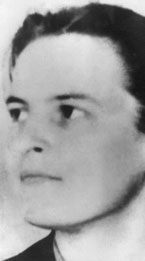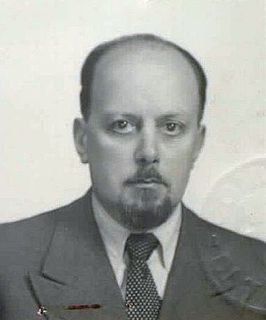A Quote by Hisham Matar
One of the frustrations of prison life, which is also one of its intended consequences, is that the prisoner is made ineffective. He is unable to be of much use. The aim is to render him powerless.
Quote Topics
Related Quotes
Paul was Nero's prisoner, but Nero was much more God's... But how does the great apostle spend his time in prison?... We read of no dispatches sent to court to procure his liberty; but many to the churches, to help them to stand fast in the liberty wherewith Christ had made them free... The devil had as good have let Paul alone, for he no sooner comes into prison but he falls a preaching, at which the gates of Satan's prison fly open, and poor sinners come forth.
The denial of any distinction between foreseen and intended consequences, as far as responsibility is concerned, was not made by Sidgwick in developing any one 'method of ethics'; he made this important move on behalf of everybody and just on its own account; and I think it plausible to suggest that this move on the part of Sidgwick explains the difference between old-fashioned Utilitarianism and the consequentialism, as I name it, which marks him and every English academic moral philosopher since him.
The flow of action continually produces consequences which are unintended by actors, and these unintended consequences also may form unacknowledged conditions of actions in a feedback fashion. Human history is created by intentional activities but is not an intended project; it persistently eludes efforts to bring it under conscious direction.
That's for the best. Otherwise they might realize they're in prison. It can't be helped. You women are used to harems and prisons. A person can spend his whole life between four walls. If he doesn't think or feel that he's a prisoner, then he's not a prisoner. But then there are people for whom the whole planet is a prison, who see the infinite expanse of the universe, the millions of stars and galaxies that remain forever inaccessible to them. And that awareness makes them the greatest prisoners of time and space.
Baptism into this Church is a serious thing. It represents a covenant made with our Heavenly Father. It is much more than a right of passage. It is a gateway to a new manner of living, and a new road on which to walk that leads to immortality and eternal life. It was never intended as a dead end. It was intended to open a glorious and wonderful way of life to all who would walk in obedience to the commandments of God.
For example, if you are a blogger who wrote something about a local official and you're going to prison for that, you're a political prisoner. If you're a businessman who has refused to cede his business to the local official and you're going to prison for that, you're not a political prisoner. In that second category there are hundreds of thousands of people in Russia.
But all at once I realized that it was not my success God had used to enable me to help those in this prison, or in hundreds of others just like it. My life of success was not what made this morning so glorious -- all my achievements meant nothing in God's economy. "No, the real legacy of my life was my biggest failure -- that I was an ex-convict. My greatest humiliation -- being sent to prison -- was the beginning of God's greatest use of my life; He chose the one thing in which I could not glory for His glory.
Everyone has in him something divine, something his own, a chance of perfection and strength in however small a sphere which God offers him to take or refuse. The task is to find it, develop it & use it. The chief aim of education should be to help the growing soul to draw out that in itself which is best and make it perfect for a noble use.





































